On May 22, a discussion called «A crisis of leadership in times of global challenges» was held in Kyiv with the participation of four speakers. Sharing with you interesting thoughts from our event!
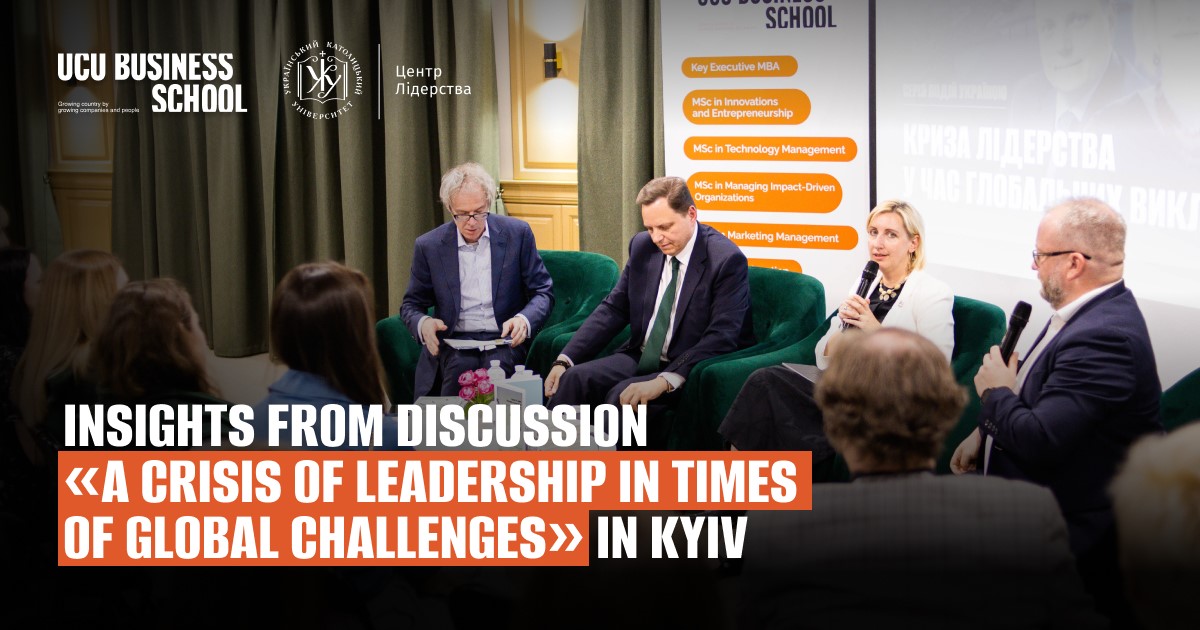
Discussed current leadership issues together with:
- Gerard Seijts, teacher of EMBA, MBA, and undergraduate courses in leadership, leading change, organizational behavior, performance management, and staffing;
- Andriy Rozhdestvenskyy, professor in leadership, HR&OD, CEO of UCU Center for Leadership;
- Sophia Opatska, Founding Dean and Chairman of the Supervisory Board of Lviv Business School at the UCU, Vice-Rector for implementation of UCU strategy at the Ukrainian Catholic University;
- Andy Hunder, President of the American Chamber of Commerce in Ukraine, representing more than 600 US and international investors and corporate members.
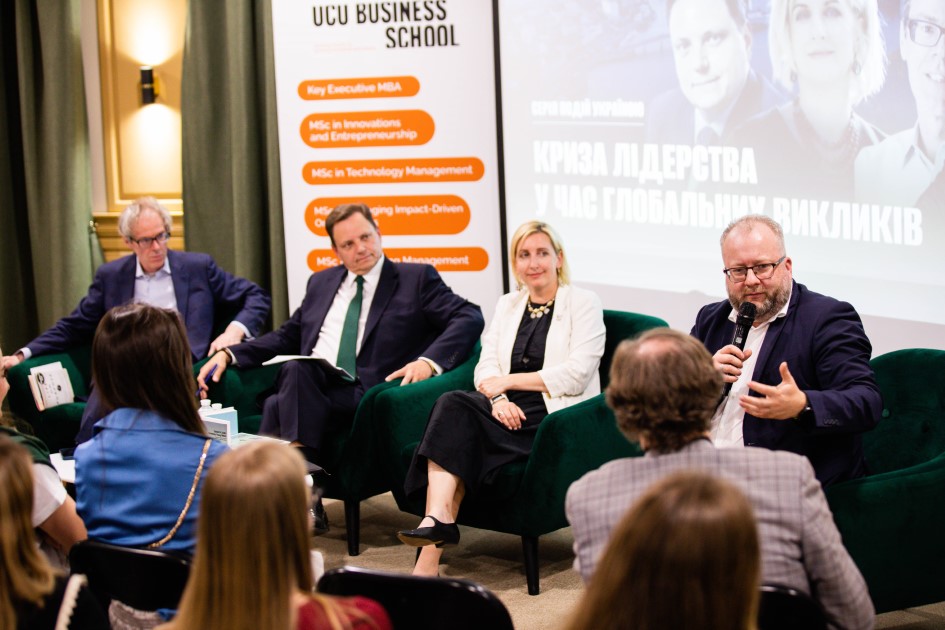
Experts focused on what makes a true leader and what Ukraine can teach the rest of the world today.
In the beginning, Andriy emphasized that unfortunately, many world politicians aren’t the best examples of leadership, especially from the Ukrainian perspective. And the consequences of this are obvious.
Gerard supported his point, stating that there is a crisis in politics, business and sports and it’s strongly facilitated by social media. When we analyze the annual trust survey (Edelman Trust Barometer), we can easily realize that its results aren’t great. “Basically, trust is foundational to good leadership. Another thing that I want to remember is the world’s uncertainty index. Year after year, this uncertainty goes up. Something isn’t working so leadership leaves much to be desired” explains Gerard.
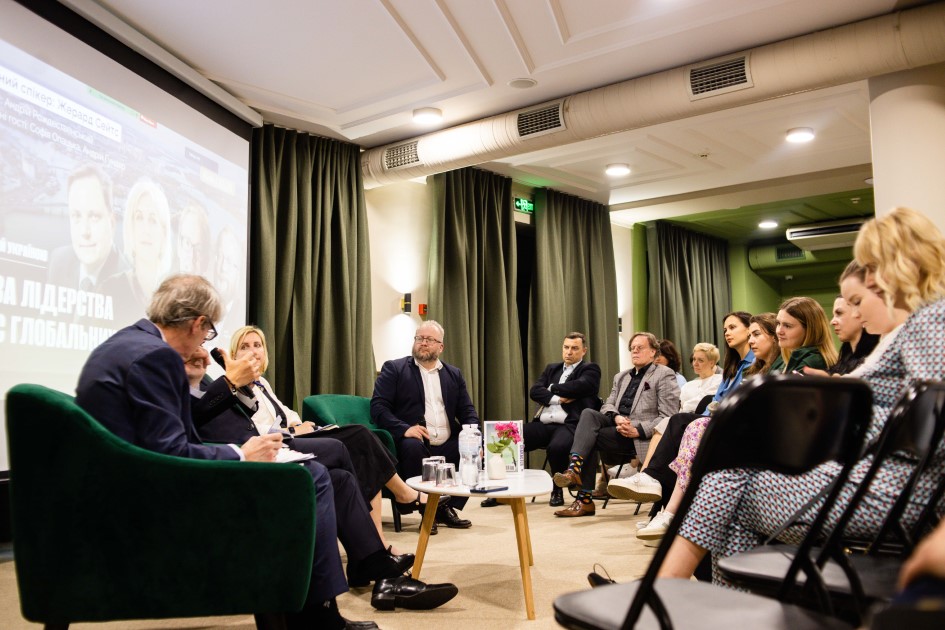
When exploring inequality and social polarization, one will see that in the heart of all these issues lies one common crisis. It’s leadership. It must be visionary, solution-seeking and collaborative. It must build hope and trust. It must inspire others and give us a chance to compromise. Gerard also shared a profound insight: “Many of today’s leaders are character-deficient. Let’s be honest: strong, well-developed character is foundational for decision-making”.
Andrii supported this position, adding that to his mind, leadership is all about 3 things: competence, commitment and honesty. Also, integrity must be part of character.
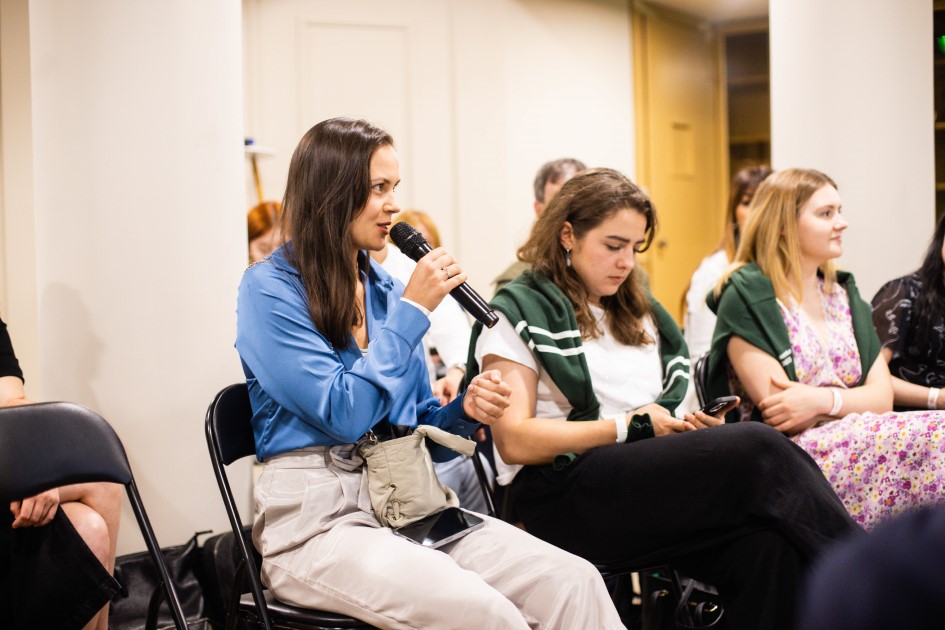
In contrast to the stated ideas, Andy shared a completely different perspective. He offered to see what we are facing right now. “Our country is being invaded, but our internet connection works better than in many cities across the globe. The banking sector in Ukraine works quite well and Kyiv is filled with people and events. The scenario was that Kyiv would fall in 3 days. In theory, a third of the audience that is present here would be killed or in prison. The rest would become collaborators or would run away from the country.
But we are all here and we are an example of leadership for the whole world. It’s not just the president, it’s the leaders in education, business and every sector”. Thus, the leadership crisis in Ukraine is not as strong.
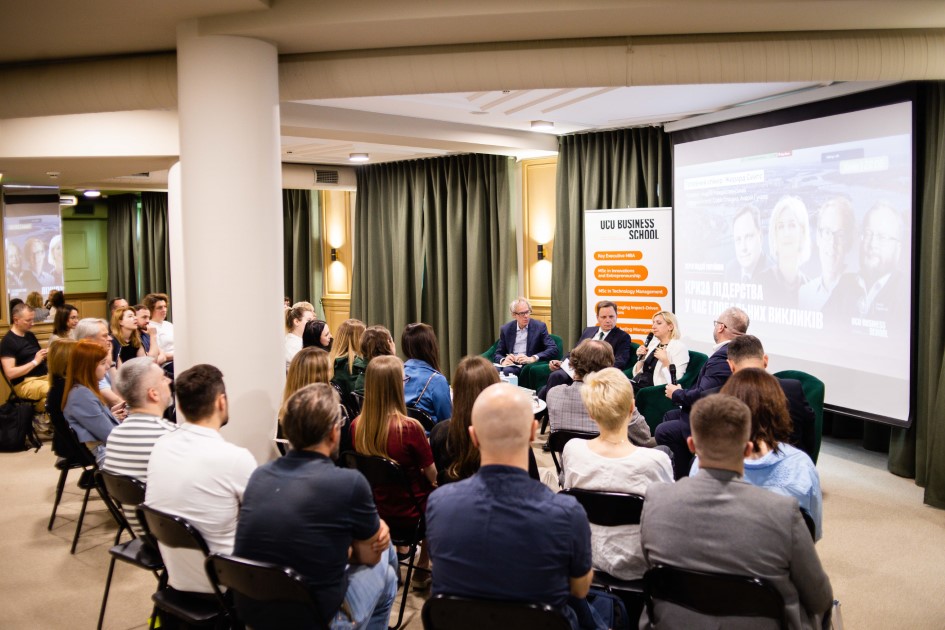
Next, the speakers discussed why many leaders fail. As Sophia said, leaders must make tough and unpopular decisions, but many of them are driven by short-term goals. This is one of the reasons for the crisis in 2008. Leaders wanted to be re-elected in finance, real estate and other areas. And this usually leads to problems. Andrii added that many world leaders have failed to offer Ukraine timely help. Still, our leaders didn’t run away.
Now let’s focus on the opinion of an expert who is observing the situation in Ukraine from the outside. As Gerard opened up, he was surprised to be invited to a panel about leadership. That’s what he said: “What do I know about this? I live in Canada, I have a roof over my head, there is no shortage of food and my life is absolutely comfortable. What can I tell resilient people who have been constantly fighting for more than 2 years? I would like to remember the words of Viktor Frankl, which helped millions of people.
The purpose, the goal – that’s what keeps us going. What motivates Ukrainians at this defining moment? Freedom, democracy, autonomy and heritage”. This opinion reveals what image Ukraine has in the world and how democratic countries such as Canada perceive it.
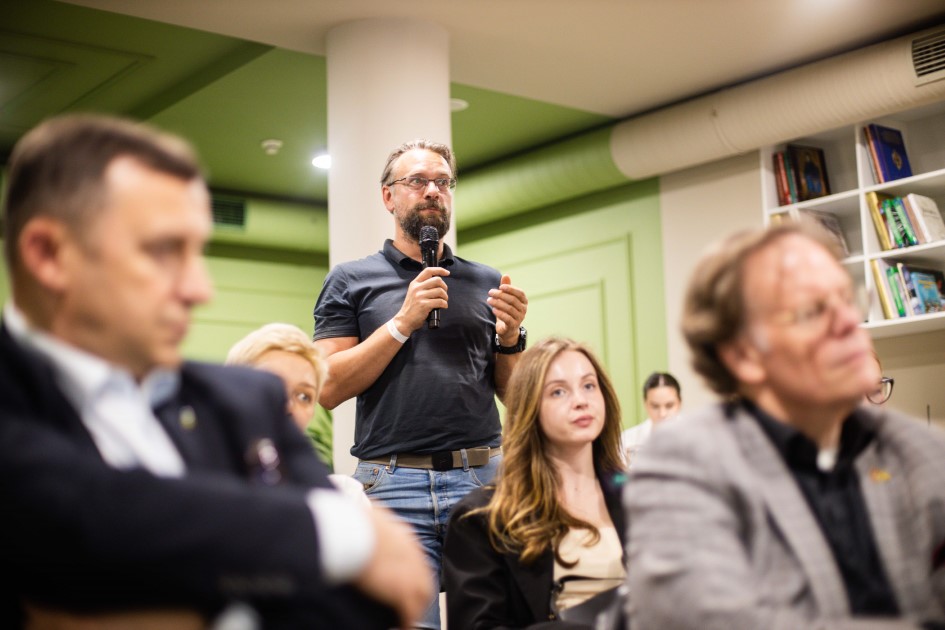
In fact, leaders are all around us. As an example, Andy shared a story he experienced recently. “I have visited a funeral and in Ukraine, there is a tradition of leaving the coffin open so that people have the opportunity to reflect. I was impressed that the colleagues of the deceased (he was the director of an advertising agency) were all crying. And I thought: what do you need to do to make your employees cry like that? It makes me think about the purpose, why we are here and what legacy we will leave”.
The last part of the discussion was devoted to what other countries can learn from Ukraine. According to Sophia, it’s all about quick change of plans. Staying flexible and adapting to new conditions. “But what we are still learning is to get energy from somewhere and take care of ourselves. It’s more difficult than in normal times”, she added.
Another point worth mentioning is that the role of leaders in art is hard to underestimate. When Andy spoke of purpose and legacy, he mentioned the example of Alla Gorska and Lina Kostenko. Today they are internationally recognized and inspire us all. But when they created their masterpieces, their work was prohibited and hidden from the people. These days, we can appreciate their legacy and their efforts weren’t in vain.
In the end, the speakers came to the conclusion that the famous phrase “Hard times create strong people. Strong people create good times” is especially relevant for Ukraine now. There is a leader in all of us and a common goal makes us so.






















